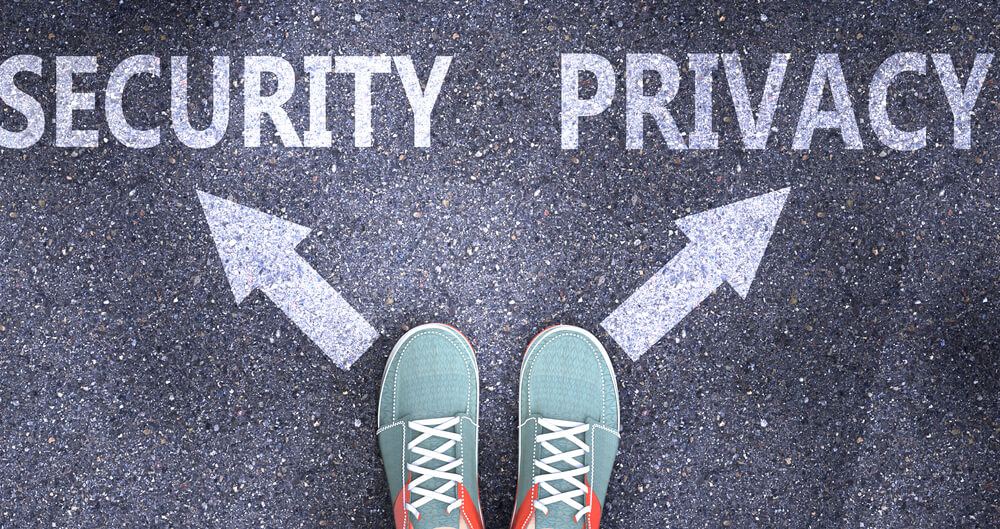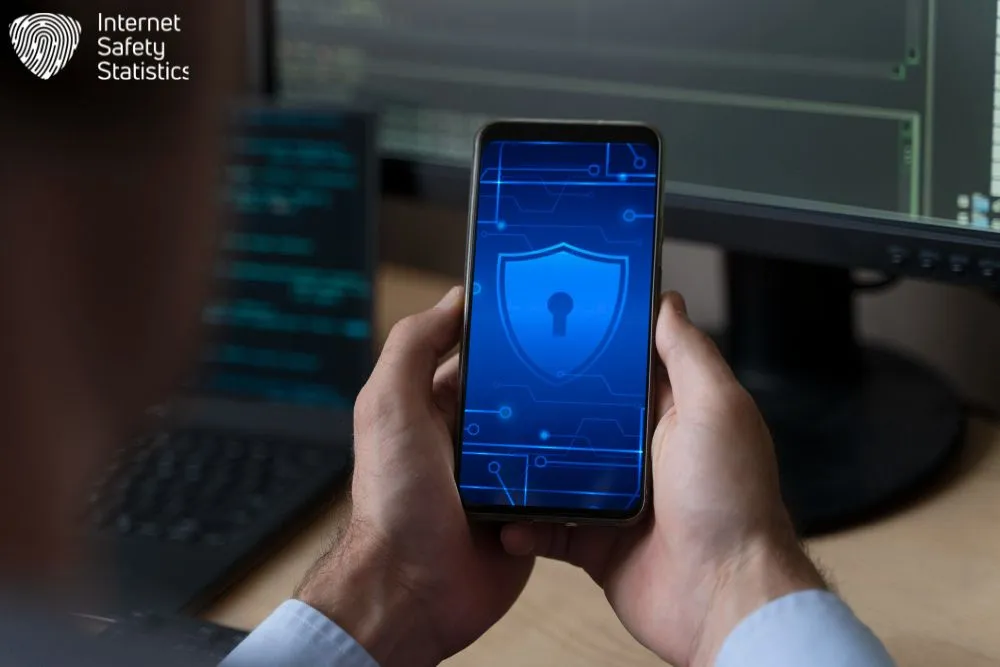
The clash between personal privacy vs national security has become increasingly pronounced, sparking impassioned debates and raising profound ethical and legal questions. At the heart of this discourse lies the tension between individual liberties and collective safety as governments grapple with the imperative to safeguard citizens from threats while respecting their fundamental rights to privacy and autonomy.
In this article, we delve into the intricate interplay between personal privacy and national security, exploring the complexities, challenges, and imperatives inherent in finding a delicate balance between these two paramount concerns. From the ethical dilemmas posed by surveillance measures to the transformative impacts of technology, we navigate the multifaceted landscape of this ongoing debate, offering insights and perspectives to inform and provoke meaningful dialogue on this critical issue.
The Importance of Personal Privacy

Have you ever scrolled through your social media feed, feeling a pang of discomfort at how much it reveals about you? Personal privacy, the right to control what information we share and keep private, protects us from such anxieties. It’s the cornerstone of our autonomy, allowing us to choose who defines us and how we engage with the world on our own terms.
Imagine being able to curate your online presence like your favourite playlist, sharing only the songs you truly resonate with. That’s the essence of personal privacy: controlling what parts of yourself you reveal and protecting the rest. From keeping your medical records confidential to ensuring your online habits stay private, this control is vital. It lets us build genuine connections, free from the pressure of constant judgment or prying eyes.
Think of privacy as the fertile ground where creativity blossoms. When we feel safe to explore unconventional ideas, challenge perspectives, and dive into deep reflection without fear of repercussions, we unleash our full potential. This freedom empowers whistleblowers to expose injustices, artists to push boundaries, and everyone in between to contribute meaningfully to society.
Privacy isn’t just about personal well-being; it’s a shield against oppression. Throughout history, regimes have tried to control information and silence dissent. But strong privacy rights act as a barrier, protecting our freedoms and upholding the very principles of democracy and human dignity.
The Imperatives of National Security

National security, a cornerstone of any nation’s well-being, encompasses a broad spectrum of threats and safeguards. At its core, it represents the collective effort to protect a nation’s vital interests—its citizens, territory, institutions, and way of life—from internal and external dangers. This dynamic shield extends beyond traditional military threats, encompassing economic stability, critical infrastructure, public health, and even environmental security.
Government’s Role: A Sacred Trust, A Multifaceted Approach
The responsibility to ensure national security rests firmly on the shoulders of governments. This requires a multifaceted approach involving:
- Military Strength: Maintaining a well-equipped and trained military to deter and respond to aggression.
- Intelligence Gathering: Actively collecting and analysing information to anticipate and thwart threats.
- Diplomacy and International Cooperation: Working collaboratively with other nations to address shared security concerns.
- Law Enforcement and Cyber Security: Safeguarding citizens from domestic threats and criminal activity in the physical and digital realms.
- Economic Stability: Fostering a strong economy to bolster national resilience and deter economic coercion.
- Public Health Preparedness: Ensuring robust healthcare systems for pandemic response and biosecurity threats.
- Environmental Protection: Addressing climate change and resource scarcity to ensure long-term security.
Illustrations: Where the Shield Makes a Difference
The importance of national security measures transcends abstract concepts. Consider these real-world examples:
- Countering Terrorism: Intelligence gathering and international cooperation prevented countless terrorist attacks, saving countless lives.
- Cybersecurity Measures: Robust cyber defences protect critical infrastructure from debilitating cyberattacks, safeguarding economic stability and essential services.
- Pandemic Preparedness: Effective public health policies mitigated the impact of pandemics, protecting citizens and ensuring social stability.
- Diplomacy and Conflict Resolution: Collaborative efforts prevented regional conflicts, averted humanitarian crises, and fostered global peace.
Personal Privacy vs National Security: Balancing the Scales
National security measures, though vital, often collide with individual privacy rights. This inherent tension raises complex questions and sparks ongoing debate. On one hand, robust security requires information gathering and surveillance, potentially intruding on individuals’ private lives. On the other hand, unchecked intrusion can erode trust, stifle dissent, and undermine fundamental freedoms. Finding the right balance requires recognition of both sides:
National Security Needs
- Identifying and mitigating threats: Analysing information is crucial for preventing terrorism, cyberattacks, and other threats.
- Maintaining public safety: Effective law enforcement relies on some level of data collection and surveillance.
- Protecting critical infrastructure: Ensuring the security of power grids, financial systems, and communication networks is vital.
Individual Privacy Concerns
- Right to privacy: Individuals have a fundamental right to control their personal information and be free from undue surveillance.
- Erosion of trust: Excessive intrusion can breed distrust in government and hamper cooperation with security measures.
- The chilling effect on dissent: Fear of surveillance can stifle free speech and open expression.
Navigating the Tightrope: Striking a Balance
Finding equilibrium is not easy, but it is necessary. Recognising the imperatives of both national security and individual privacy allows us to navigate this complex landscape, ultimately aiming for a society where both safety and freedom flourish.
- Transparency and accountability: Open communication about security measures and robust oversight mechanisms are crucial.
- Targeted and proportionate measures: Surveillance powers should be narrowly defined and applied, avoiding mass data collection.
- Data protection and privacy safeguards: Implementing strong data security measures and ensuring individual access and control over personal information are essential.
- Open dialogue and engagement: Inclusive discussions involving various stakeholders can lead to effective and balanced solutions.
Technological Impacts: A Double-Edged Sword

Technology plays a pivotal role in modern national security strategies, offering an array of tools and capabilities. From intelligence gathering and analysis to cybersecurity defences and border protection, these advancements significantly enhance our ability to identify and mitigate threats. However, like any powerful force, technology raises concerns that must be carefully considered.
Boosting Security
- Intelligence Gathering: Advanced data analysis tools can uncover hidden patterns and identify potential threats early on. Biometric identification and data from social media platforms have aided in preventing terrorist attacks and tracking criminal activity.
- Cybersecurity: Encryption technologies protect critical infrastructure from cyberattacks, while firewalls and intrusion detection systems mitigate data breaches.
- Enhanced Surveillance: Drones and facial recognition software aid in border security and law enforcement investigations, though raising concerns about potential abuse.
Privacy Erosion
The sheer scale of data collection, ranging from phone calls to internet browsing history, enables the creation of intricate profiles of individuals, often without their awareness or consent. Algorithms employed in data analysis processes may inadvertently perpetuate biases, resulting in unfair profiling and contributing to discrimination and marginalisation.
Moreover, the proliferation of online tracking technologies and facial recognition software poses challenges to maintaining anonymity in public spaces, potentially casting a chilling effect on free speech and dissent.
Emerging Challenges
As technology continues to evolve at a rapid pace, new challenges emerge in the realm of security.
- Artificial Intelligence (AI): While AI offers potential for automated threat detection and cyber defence, it also raises concerns about autonomous weapons systems and the potential misuse of its predictive capabilities.
- Quantum Computing: This technology could break current encryption standards, threatening both national security and individual privacy.
- Internet of Things (IoT): Connecting everyday devices to the internet expands the attack surface for cybercriminals and presents challenges in protecting personal data collected by these devices .
In recent years, several high-profile events and regulatory actions have underscored the complex intersection of personal privacy and national security. The following examples highlight the multifaceted nature of the challenges facing policymakers, businesses, and individuals alike.
- The Edward Snowden leaks in 2013 exposed the extent of mass data collection by governments, sparking a global debate about privacy rights.
- The rise of deepfakes, AI-generated videos that manipulate reality, raises concerns about potential misuse for disinformation campaigns.
Finding a Balance
Reconciling national security needs with individual privacy rights is a constant pursuit, requiring creativity, collaboration, and a shared commitment to fundamental values. Here, we explore strategies and recommendations to navigate this complex landscape:
Building Bridges, Not Walls
Achieving harmony between national security and personal privacy demands creative strategies that bridge the gap between these seemingly opposing forces. Instead of erecting impenetrable walls, fostering collaboration and employing targeted measures is key.
Firstly, moving away from mass data collection towards focused intelligence gathering based on specific threats offers significant benefits. This approach not only protects individual privacy by minimising unnecessary intrusion but also proves more effective in identifying and mitigating genuine threats. Imagine intelligence officials meticulously investigating suspicious activities rather than sifting through mountains of irrelevant data—a targeted approach yielding sharper results with less privacy erosion.
Secondly, harnessing privacy-enhancing technologies offers a win-win scenario. Techniques like anonymisation, secure multi-party computation, and homomorphic encryption allow valuable data analysis to occur without compromising individual identities. Think of it as analysing data wearing blindfolds and masks, enabling insights into trends and patterns while preserving personal anonymity.
Finally, embracing the principle of data minimisation ensures only the information strictly necessary for specific security purposes is collected and retained. Imagine a lean, targeted approach utilising just the essential pieces of the puzzle, discarding any extraneous data that could pose privacy risks. By adopting this principle, we safeguard individual privacy without compromising effective security measures.
Transparency and Accountability
Empowering individuals and fostering trust in governing bodies hinges upon comprehensive legislation with crystal-clear guidelines governing data collection, usage, and access. Think of it as laying down the ground rules for a fair and transparent digital playing field.
But it doesn’t stop there—imagine robust and independent oversight bodies as the vigilant guardians ensuring everyone plays by those rules, effectively preventing any misuse or overreach of power. It’s like having watchful eyes to keep the game fair and square.
And let’s not forget about open communication. Picture a dialogue where national security measures aren’t shrouded in secrecy but are openly discussed, with their impact on personal privacy laid bare. It’s about building bridges of understanding and trust between the public and those tasked with safeguarding our security, akin to inviting everyone to the table for an honest conversation.
Balancing national security and individual privacy demands constant vigilance and adaptability. While strong security measures are crucial, preserving fundamental freedoms is equally essential. Embracing transparency, empowering stakeholders, and fostering innovation enable us to navigate this intricate terrain. Together, we can forge a future where safety and privacy coexist harmoniously, shaping a world where security and liberty stand as pillars of strength.
